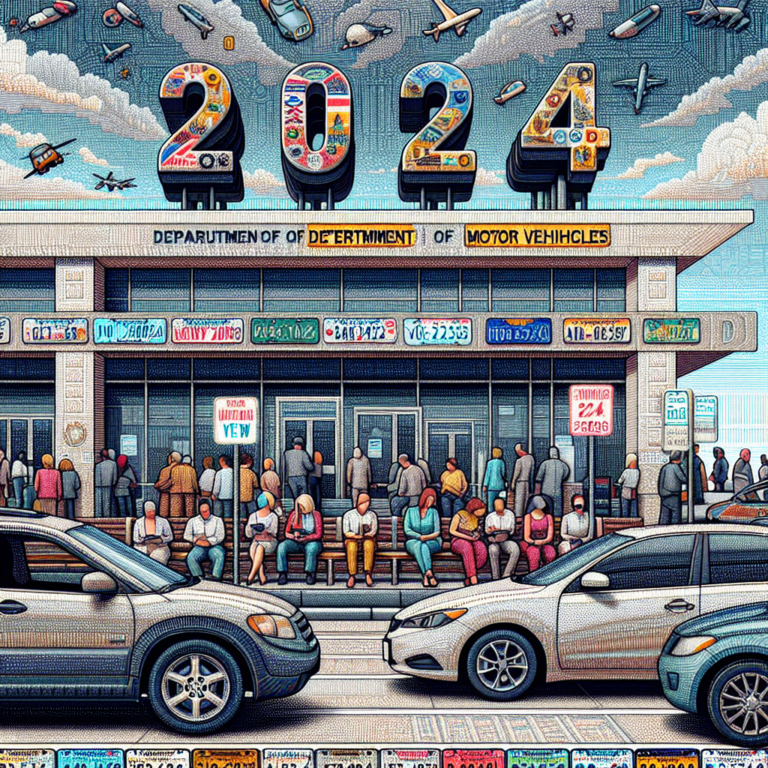As we step into 2024, it’s essential for drivers to stay informed about changes and updates at the Department of Motor Vehicles (DMV). Each year, the DMV introduces new policies, technologies, and procedures designed to improve the efficiency of vehicle registration, licensing, and overall customer service. This article outlines some of the key updates for 2024 that all drivers should be aware of.
1. Expanded Online Services
In an ongoing effort to enhance convenience and accessibility, many state DMVs are expanding their online services. In 2024, drivers can expect to complete even more transactions online, including:
-
Renewing Driver’s Licenses and IDs: Many states now offer online renewal options, with some implementing virtual identity verification systems that allow users to safely confirm their identity without a physical visit to a DMV office.
-
Vehicle Registration and Title Transfers: Online capabilities for registration renewals and title transfers have been expanded, reducing the need for in-person visits.
- Appointment Scheduling: New and improved systems allow drivers to schedule appointments for in-office services in advance, minimizing wait times and ensuring a more organized process.
2. Enhanced ID Requirements
With growing concerns about security and fraud prevention, many states have updated their identification requirements. Effective in 2024, drivers should be prepared to provide:
-
Real-ID Compliance: Many states are emphasizing adherence to the Real ID Act. If you plan on flying domestically or visiting federal facilities, it’s essential to ensure that your ID is Real ID compliant. Check your state’s DMV website for information on how to obtain a compliant ID.
- Proof of Residency: Expect stricter proof-of-residency regulations when applying for a driver’s license or ID. Be prepared to provide multiple documents, such as utility bills or bank statements, that show your current address.
3. Introduction of Mobile Driver’s Licenses
An exciting development for 2024 is the introduction of mobile driver’s licenses (mDLs) in select states. These digital licenses provide a secure and convenient way for drivers to carry their identification on their smartphones. Features include:
-
Enhanced Security: mDLs use advanced encryption and biometric verification, making them nearly impossible to forge.
- User Control: Drivers have more control over their personal information, allowing them to share only the necessary data when requested by authorities.
4. Legislative Changes Impacting Fees and Penalties
Several states have enacted new legislation that will affect vehicle registration fees and traffic violation penalties in 2024. Key changes include:
-
Fee Adjustments: Some states are revising their registration fees, so it’s prudent to check whether your renewal fee has changed. Additionally, some states have eliminated certain surcharges that were previously imposed.
- Updated Penalties for Violations: There may also be increased fines for specific traffic violations aimed at improving road safety, particularly for speeding and distracted driving.
5. Improved Customer Service Initiatives
In 2024, many DMVs are focusing on customer service improvements through training programs for staff and the introduction of more user-friendly technology in offices. Some initiatives include:
-
Customer Feedback Systems: DMVs are now utilizing real-time feedback systems to gauge customer satisfaction and make adjustments as necessary.
- Service Kiosks: More DMV locations are being equipped with self-service kiosks where customers can perform simple transactions, such as printing registration renewals or checking the status of their applications.
6. Focus on Sustainable Practices
In an effort to promote sustainability, several DMVs are beginning to adopt more eco-friendly practices, such as:
-
Digital Documentation: Encouraging online communications and digital documentation to reduce paper usage.
- Electric Vehicle (EV) Initiatives: Increased support for electric vehicles, including streamlined processes for obtaining EV licenses and possible reductions in registration fees for electric vehicles, reflecting a national push towards greener transportation options.
Conclusion
Whether it’s through enhanced online services or legislative changes, staying informed about what’s new at the DMV is crucial for all drivers in 2024. By understanding these updates, drivers can navigate their DMV visits more efficiently and ensure compliance with new regulations. For the most current information relevant to your state, always check the official DMV website or contact your local office directly. Happy driving!


